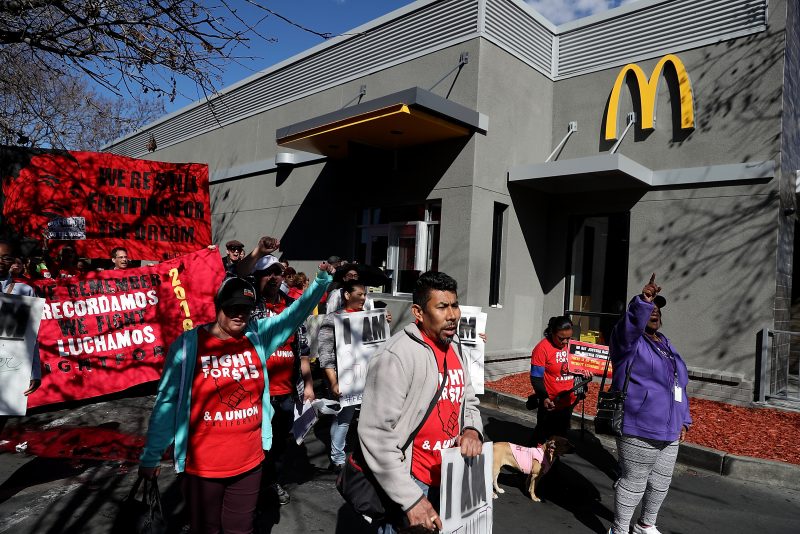
OAN’s Elizabeth Volberding
12:10 PM – Monday, April 1, 2024
The minimum wage for fast food employees in California will increase to $20 per hour under a new law in the state, and employers claim that having to pay their employees more will now affect their customers as they are planning to raise prices and lay off workers.
On Monday, the minimum wage for fast food workers in California will increase to $20 per hour, providing many with a 25% pay increase from just the past week.
However, chains that “bake and prepare bread in-house to sell as a stand-alone menu item” are excluded from the new regulation.
Some of the largest food chains are impacted by the ruling, including McDonald’s, Pizza Hut, KFC, Subway, and Starbucks. Local franchisees are now concerned about the rise in labor expenses.
Regarding the United States’ economy, fast food professions are among the lowest-paying, notwithstanding recent wage growth following decades of stagnation. Many of these workers are below the poverty line.
In order to cover the necessary wage rise, fast food restaurants such as Jack in the Box, Chipotle Mexican Grill, and McDonald’s stated that they intend to increase menu prices. Representatives stated that it is necessary for other business owners to do so as well in order to stay competitive.
“Even the tater tots, everything, the price is going to increase on that,” explained Brady Farmer, Chef Bradley Cook’s Catering Owner.
Although Farmer is not required to raise his minimum salary as a small business owner, he stated that he wants to treat his employees well and does not want them to quit. He went on to say that it will add up to cover that additional ground.
“Imagine the guy who has to go out and do that ten-hour job of all your shopping, organizing, driving around,” he said. “You get into an extra $20, $40 or $50, $100, or $200 dollars a day.”
McDonald’s employee Jaylene Loubett, who is based in Los Angeles, highlighted that her city is among the most costly in the state of California, which is also one of the most expensive states overall to live in.
“Even though it’s a big help, people need to realize that $20 compared to the cost of living in Los Angeles, it’s still not enough to feel secure,” said Loubett, 25, who has worked at McDonald’s for six years.
Loubett currently lives with her parents, whom she said both “have health problems,” in a one-bedroom apartment. Loubett’s ultimate goal is to use her raise to begin saving for a larger home, or at the very least, to reduce her stress level related to bills.
“It gives me a little bit more of a wiggle room,” she explained.
The minimum wage in California was previously $16 per hour for fast food jobs.
With certain exemptions for bakeries and smaller outposts inside grocery stores, airports, and other sites, the new wage law is applicable to fast-food franchises with at least 60 locations across the United States.
A new Fast Food Council was established in accordance with the new law and housed within the state’s industrial relations department. The council, which consists of owners and employees of restaurants, will create guidelines and standards for the fast-food sector.
In general, California often sets the standard for many business decisions that are subsequently adopted by other states. Advocates anticipate that fast food compensation will experience a similar phenomenon, expanding to other industries both in the state and nationwide.
Stay informed! Receive breaking news blasts directly to your inbox for free. Subscribe here. https://www.oann.com/alerts

